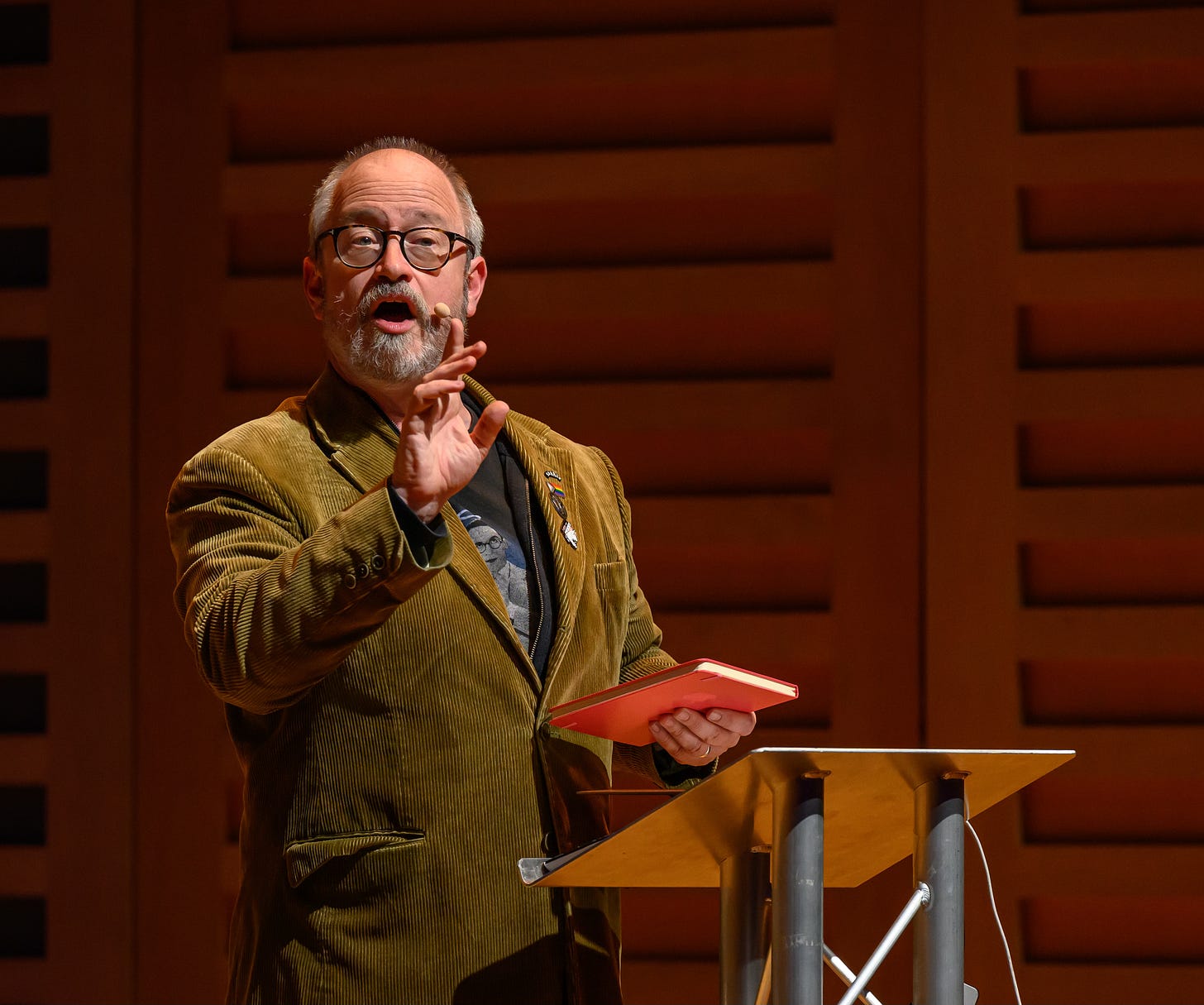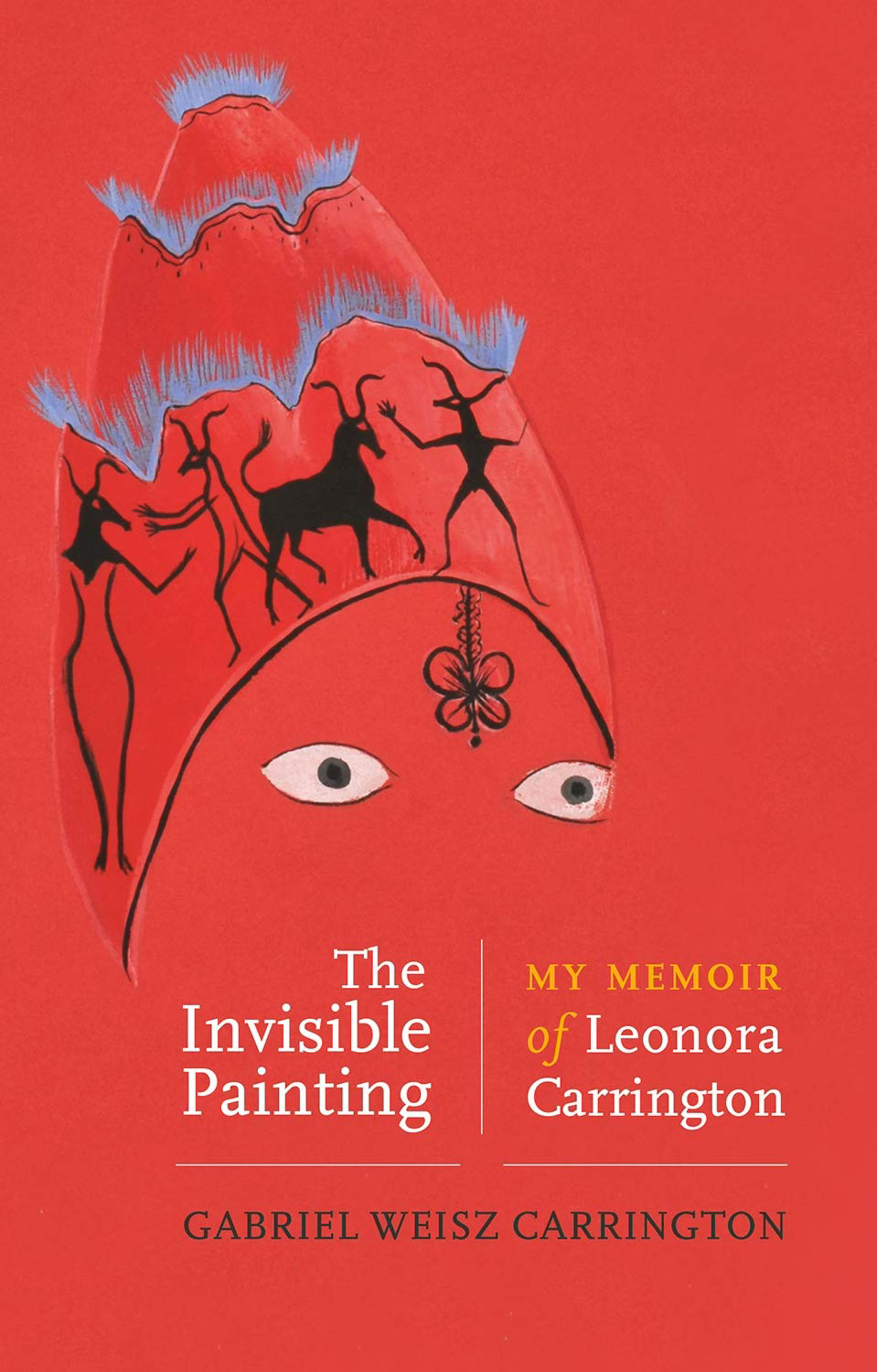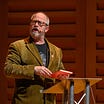Standing backstage at a benefit gig, nestling between the Cadbury’s Celebrations and the Cava, the joyously madcap Cheeky Kita, who you may have seen walking around Edinburgh as a piece of bread, asks if I get nervous before I go on stage.
I reply, “No”.
“How?”
“Because I now walk on stage believing that everyone wants to have a nice time, so I walk on with love for the audience . Our relationship may hot rocky ground, but I think to start without fear or aggression is a positive place to be”.
I think if that is your way in, then you start to look very mean-spirited in the audience if you decide to be abusive or snarky.
Many comedy clubs I used to play would start with with mockery of the audience, I did it too. It felt both necessary and expected.
You will see many posts on TikTok of a comedian asking questions of an audience member and then character assassinating them. The best people at this ultimately create an inclusive sense of mockery, “it’s all a game”, for others, there is a sense of fear and anxiety (see Alistair Green’s brilliantly excruciating “man in the front of a comedy club”) .
Once this stall has been set, then there is an expectation from both sides that this is combat as well as comedy.
In Normally Weird and Weirdly Normal, I have written about my first meeting with my longest serving friend, Ed. We were both 13 years old, sat on a school bus after a tiring cross country run and rowing exercises. We were both in the first few months of attending boarding school. These were not happy times.
I was jocular as I looked at Ed’s red face and said it was all bit rubbish having to do that run and he told me to piss off. Now I know why.
Within the first few weeks, such horrible things were done to Ed that all his trust had in anyone had been eviscerated. How first presumption was that this must be a conversation that was preparing for attack.
We bonded a little later over Starburst magazine and have been friends for 42 years.
This is how too much of the world works. Threat, real, and frequently fantasised by the media, closes in on us like a Carpenter fog (or Stephen King mist, all correct meteorological terms I assure you). From this point onwards, we must always be prepared to defend ourselves.
To be happy is to be weak.
To fail to see the worst in everyone is high naivety. For the last ten years, I have felt the level of aggression in the air is on the increase, an aggression that comes from being scared of the world or scared of being “found out”, too be hopeful is to be weak.
I used to walk through the world scared until I found the right diagnosis and the right pills. I also always tried to be helpful, but with a greater anxiety about my helpfulness may be relived or rejected.
I used to depart the house with anxiety, a myriad of imagined scenarios with every possible confrontation.
Now, I do not.
Nor do I think it is more “sophisticated” to be negative.
I believe that kindness and happiness are weapons.
A quote that has stayed with me is from The Invisible Painting, a memoir of her written by her son, Gabriel Weisz Carrington.
“For people who live in emotional poverty, other people’s happiness is a threat”.
Once you understand that your unhappiness is a goal of many columnists , pundits and politicians, then you gain the stamina to defeat their aims. This is not the same as accepting them or their actions. Misery can be exhausting , I don’t think it makes us more powerful when it comes to fighting oppression. Another quotation that has inspired me was found in Olivia Laing’s Funny Weather.
It is about 'reparative reading’ (an idea of Eve Kosofsky Sedgwick). It is to be “fundamentally more invested in finding nourishment than identifying poison. This doesn't mean being naïve or undeceived, unaware of crisis or undamaged by oppression. What it does mean is being driven to find or invent something new and sustaining out of inimical environments.”
If we start each day from the point of defeat, where do we go to?
If we leave our home each day thinking, “I wonder how many people I can be an ally to today. I wonder how many people I can make less fearful of the world?” , then we start the day from a position of power. If we are able to think like this, to find space to contemplate this notion, then we must be aware that we already have more freedom than many in this world, and how exactly can we use our freedom to increase the freedoms of others?
We are right to be angry at the betrayals we see in the world. We are right to march forward and aim to change what we see. Each day let us approach the world with the aim of finding allies, not enemies. And when the sneerers approach, don’t give them a second. They will build nothing and only suck your energy, we have better ways to spend our time.
Order signed copies of Robin’s new book now from the Shambles shop.








Brilliant. Wish I'd read this 40 years ago
This is just lovely x